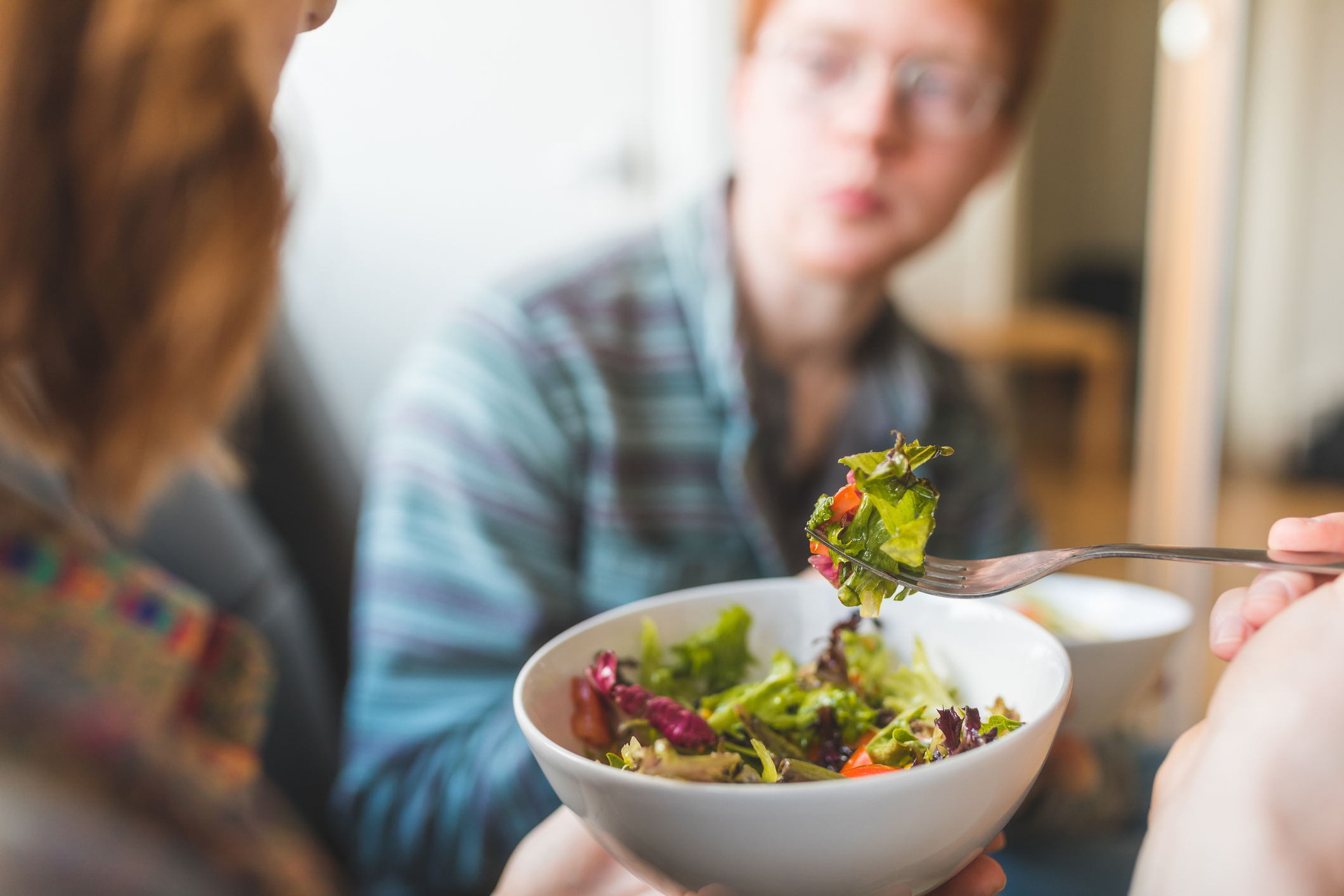Get Easy Health Digest™ in your inbox and don’t miss a thing when you subscribe today. Plus, get the free bonus report, Mother Nature’s Tips, Tricks and Remedies for Cholesterol, Blood Pressure & Blood Sugar as my way of saying welcome to the community!
How not to get breast cancer from your salad

If you were alive between the 1940s and the early 1970s, you were almost certainly exposed to the infamously poisonous agricultural pesticide dichlorodiphenyltrichloroethane, better known as DDT.
The problem with pesticides like DDT, known as organochlorine compounds, is that they don’t just go away. Depending upon when you were exposed, there’s a decent chance that DDT is still in your body.
The United States banned the use of DDT in 1972 when it was proven to be an endocrine-disrupting chemical that can mimic estrogen and activate gene mutations that cause breast cancer.
Since then, other pesticides and weed killers have taken their place. Atrazine, a weed killer, and malathion, an insecticide, are still widely used in farming and agriculture.
Yet both of these chemicals have been linked with the formation of mammary gland tumors in mice.
And yes, in case you’re wondering, there’s evidence that they have the same effect on humans.
Research shows link between pesticide exposure and breast cancer
Here are just two pieces of research linking pesticide and herbicide exposure with breast cancer:
- A 2013 study published in the International Journal of Occupational and Environmental Health found an increased incidence of breast cancer in younger Hispanic farmworkers who were exposed to a combination of pesticides, including malathion and chlordane.
- Another study found that wives of agricultural workers who used a chemical known as 2,4,5-TP, and who lived close to the site where the chemical was used, had an elevated risk of breast cancer.
A follow-up to this study revealed associations between the use of chlorpyrifos, also called nerve gas pesticide, and the development of premenopausal breast cancer in the same group of women.
How to avoid pesticides in your food
One of the best ways to “eat clean” is to buy organic produce.
For food to be labeled “organic,” it must meet the approval of the U.S. Department of Agriculture. It must be grown or farmed without the use of artificial chemicals, hormones, antibiotics or genetically modified organisms.
It’s been shown that organic eating reduced the risk of premenopausal breast cancer by almost 35 percent!
But if you can’t eat 100 percent organic produce, or have not done so up until now, you’d be wise to consider a natural detox program using modified citrus pectin. Detoxing helps your liver, your body’s main detoxing organ, protect you against the constant onslaught of toxin exposure.
Other ways to protect yourself from cancer-causing pesticides are to grow your own produce, or at least to stick to locally grown food and wash it with soap and water before storing and eating it.
Finally, the Environmental Working Group (EWG) is an excellent source of information. Their annual Dirty Dozen and Clean Fifteen produce lists will help you stay away from the fruits and vegetables more likely to be contaminated, in favor of those that are generally cleaner and free of pesticides.
Editor’s note: Discover how to live a cancer prevention lifestyle — using foods, vitamins, minerals and herbs — as well as little-known therapies allowed in other countries but denied to you by American mainstream medicine. Click here to discover Surviving Cancer! A Comprehensive Guide to Understanding the Causes, Treatments and Big Business Behind Medicine’s Most Frightening Diagnosis!
Sources:
Dozens of pesticides linked with mammary gland tumors in animal studies — Medical Express
Other Pesticides & Herbicides — Breast Cancer Prevention Partners
Organochlorine pesticide exposure as a risk factor for breast cancer in young Indian women: A case–control study — South Asian Journal of Cancer
Dirty Dozen™ EWG’s 2020 Shopper’s Guide to Pesticides in Produce™ — Environmental Working Group
Clean Fifteen™ EWG’s 2020 Shopper’s Guide to Pesticides in Produce™ — Environmental Working Group
DDT Linked to Fourfold Increase in Breast Cancer Risk — National Geographic
US EPA’s regulatory pesticide evaluations need clearer guidelines for considering mammary gland tumors and other mammary gland effects — Molecular and Cellular Endocrinology













